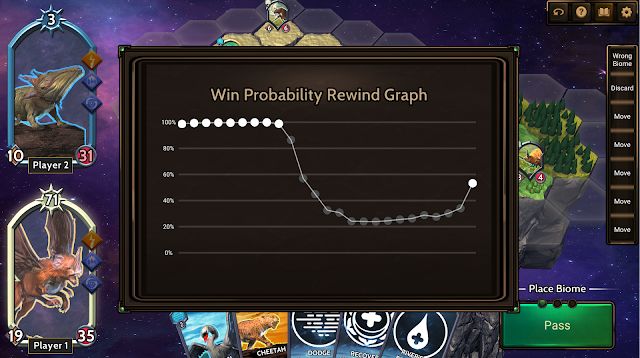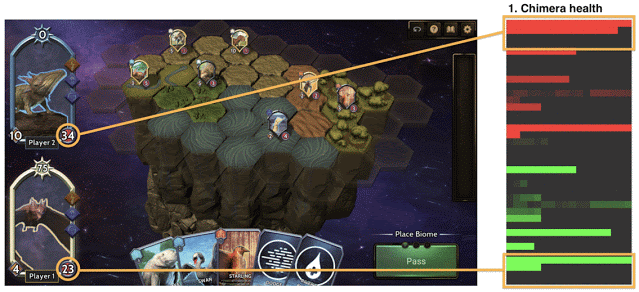机器学习助力游戏开发:训练模型充当游戏测试人员,改善在线多人游戏的均衡性
修改于2021/03/2295 浏览综合
Leveraging Machine Learning for Game Development | Google AI Blog
As an imperfect information card game with a large state space, we expected
Chimera to be a difficult game for an ML model to learn, especially as we were
aiming for a relatively simple model. We used an approach inspired by those used
by earlier game-playing agents like AlphaGo, in which a convolutional neural
network (CNN) is trained to predict the probability of a win when given an
arbitrary game state. After training an initial model on games where random
moves were chosen, we set the agent to play against itself, iteratively
collecting game data, that was then used to train a new agent. With each
iteration, the quality of the training data improved, as did the agent’s ability
to play the game.

For the actual game state representation that the model would receive as input,
we found that passing an **"image" encoding** to the CNN resulted in the best
performance, beating all benchmark procedural agents and other types of networks
(e.g. fully connected). The chosen model architecture is small enough to run on
a CPU in reasonable time, which allowed us to download the model weights and run
the agent live in a Chimera game client using Unity Barracuda.

This approach enabled us to simulate millions more games than real players would
be capable of playing in the same time span. After collecting data from the
games played by the best-performing agents, we analyzed the results to find
imbalances between the two of the player decks we had designed.

Normally, identifying imbalances in a newly prototyped game can take months of playtesting. With this approach, we were able to not only discover potential imbalances but also introduce tweaks to mitigate them in a span of days. We found that a relatively simple neural network was sufficient to reach high level performance against humans and traditional game AI. These agents could be leveraged in further ways, such as for coaching new players or discovering unexpected strategies.


